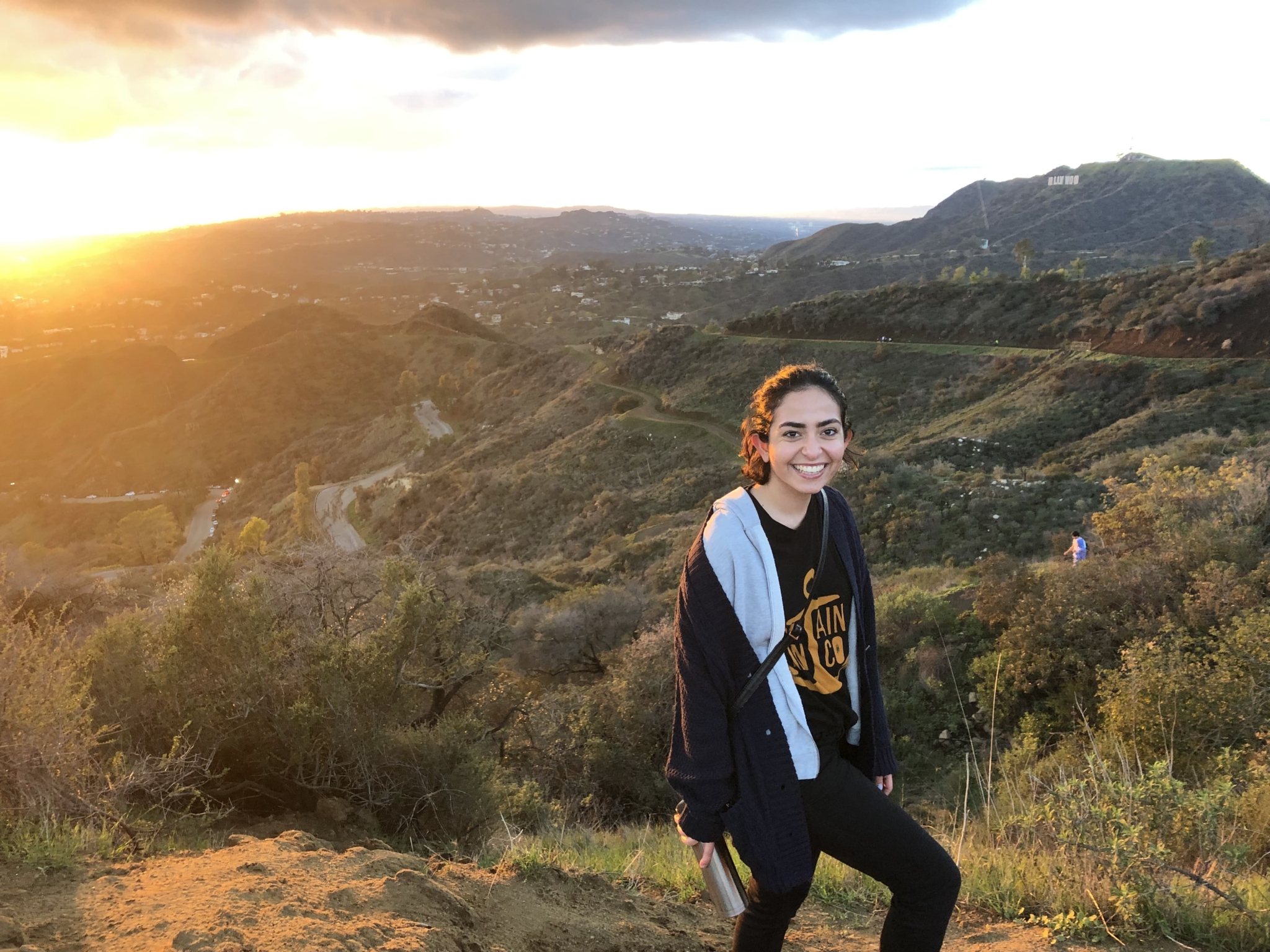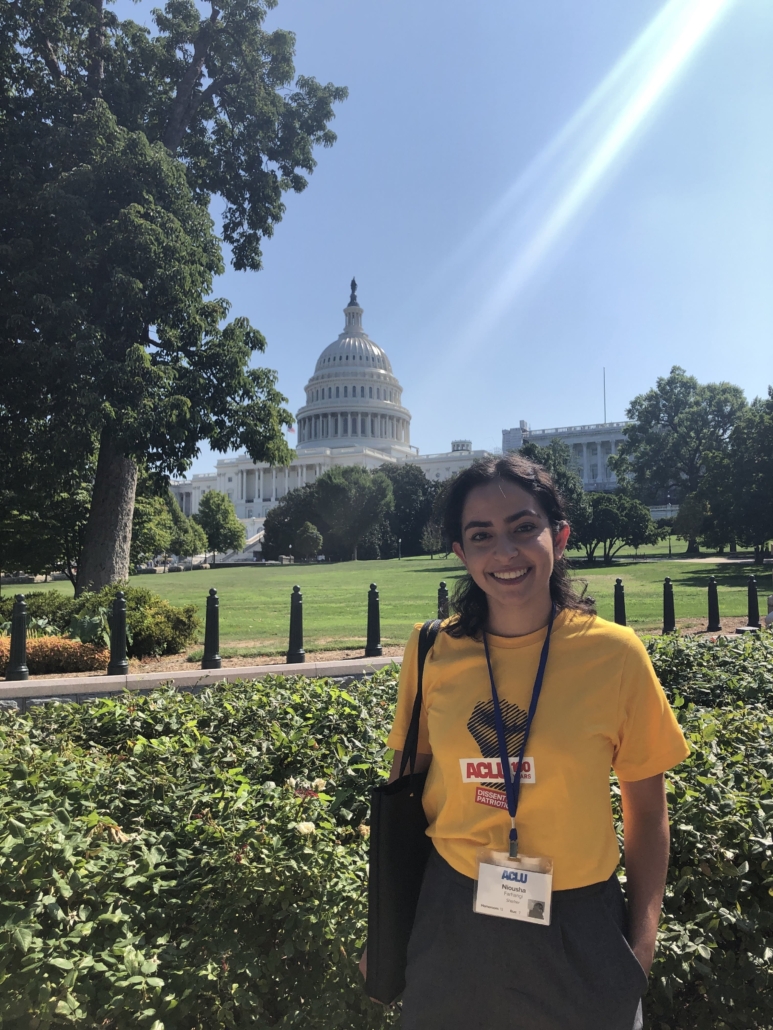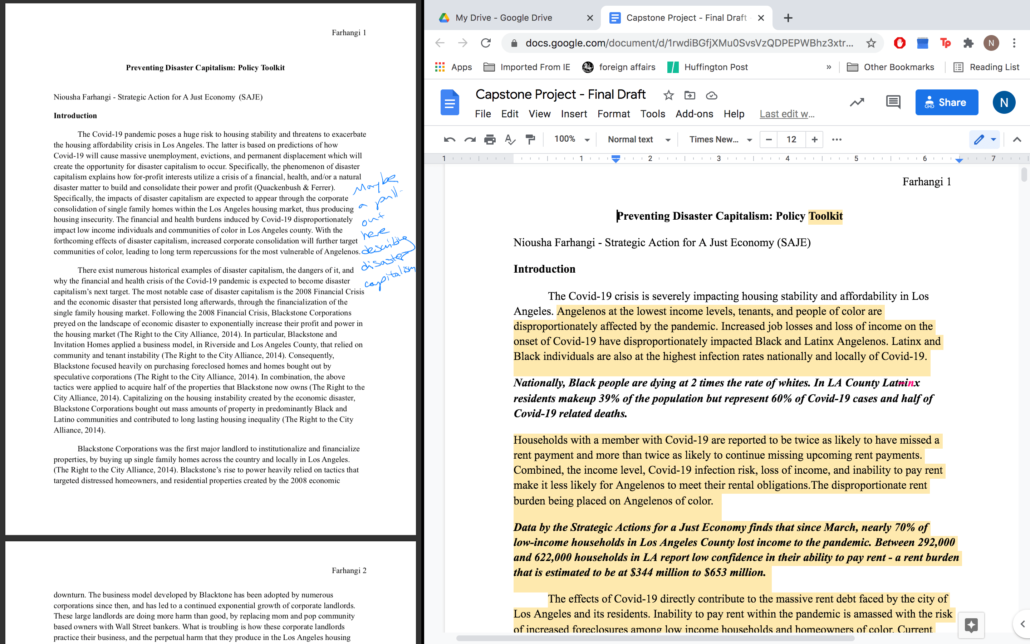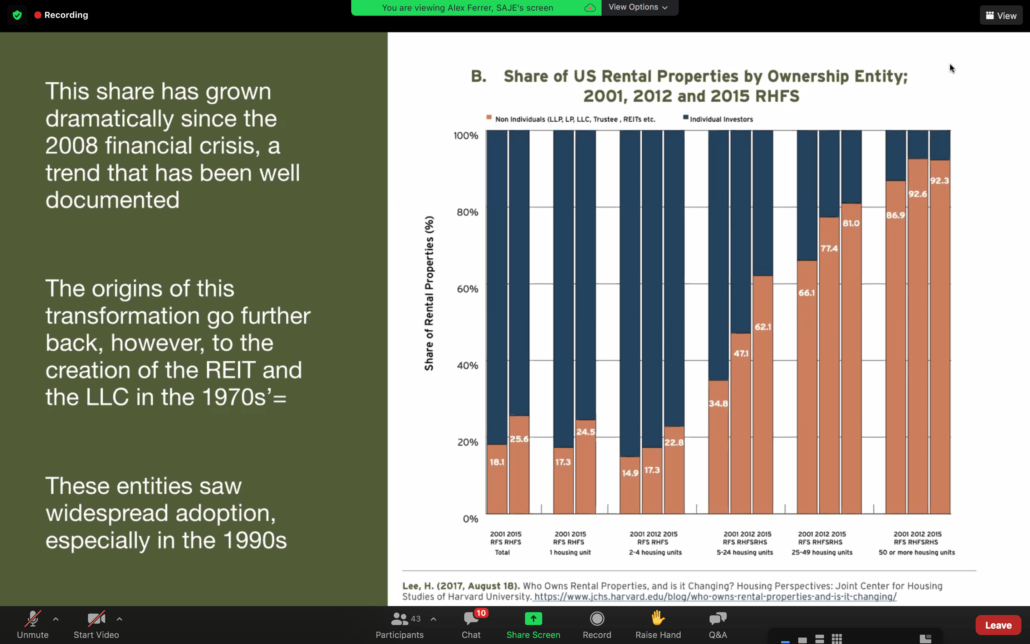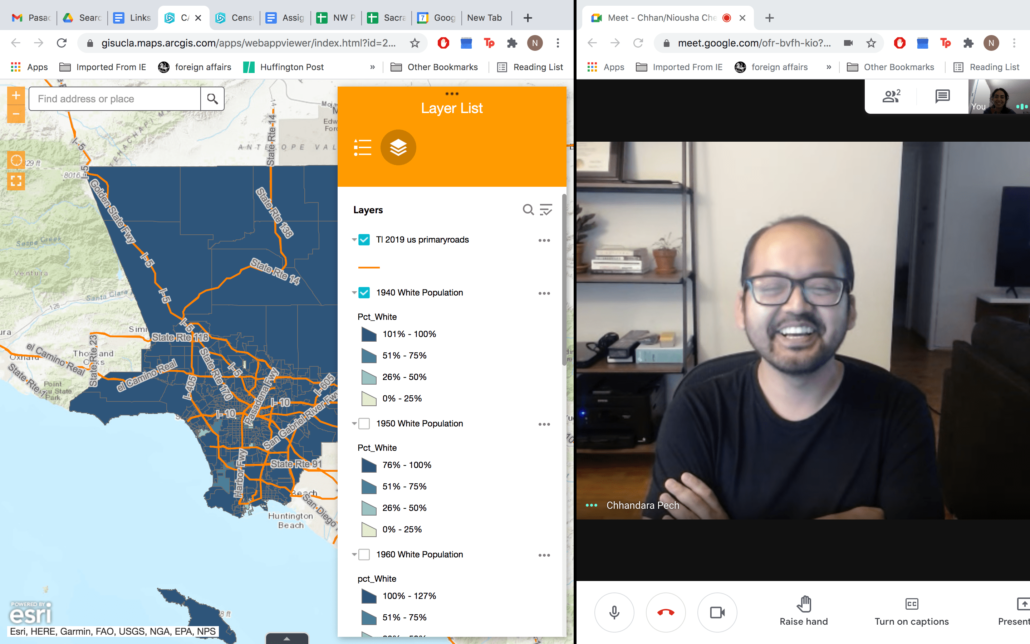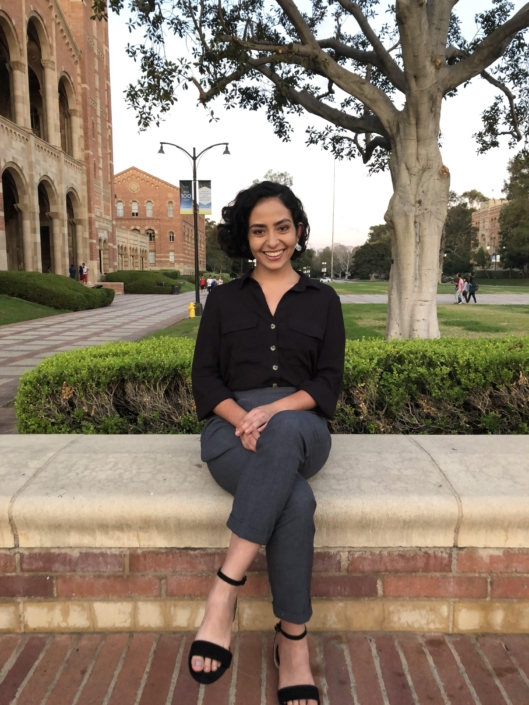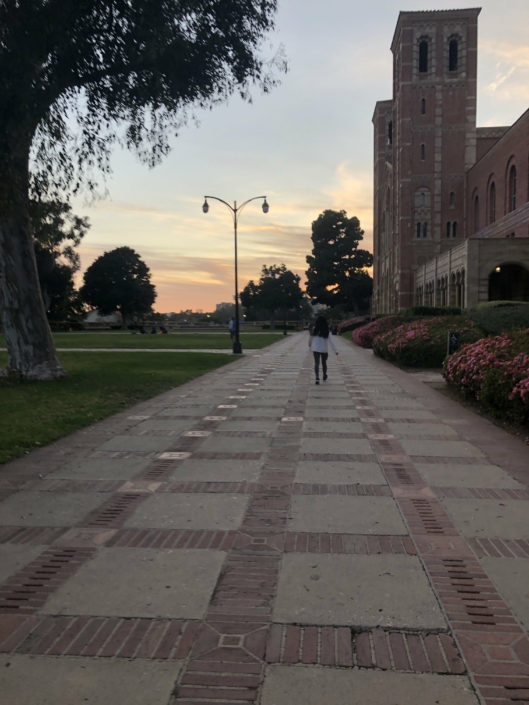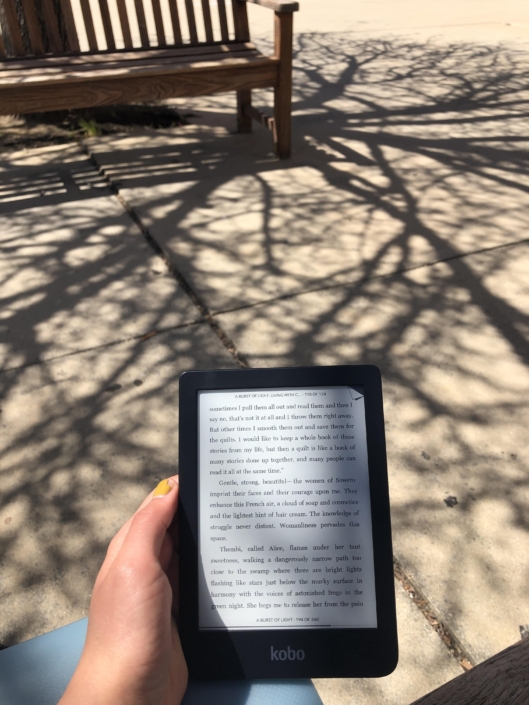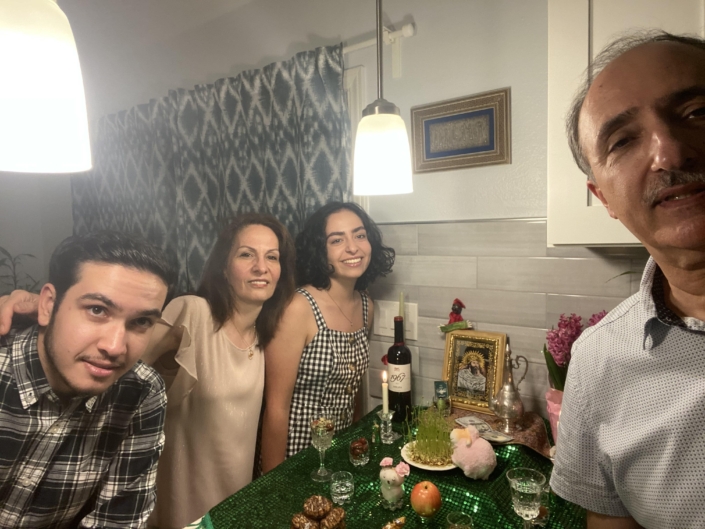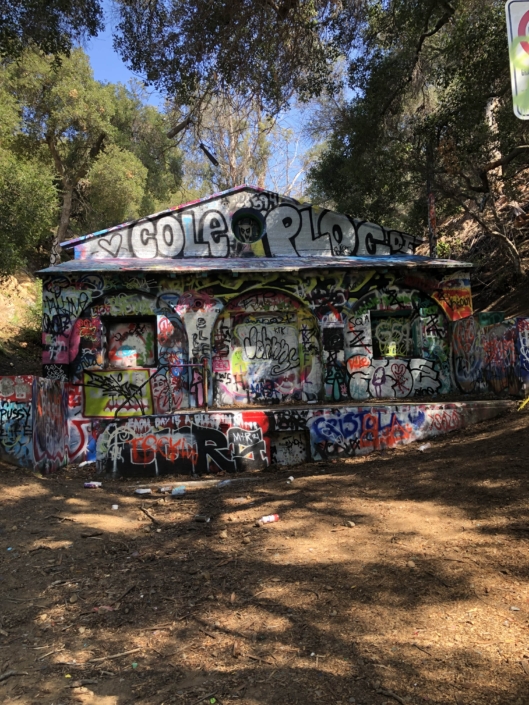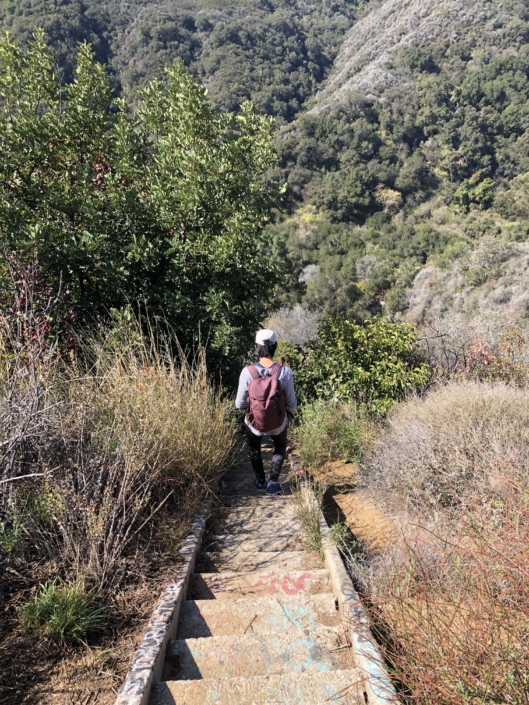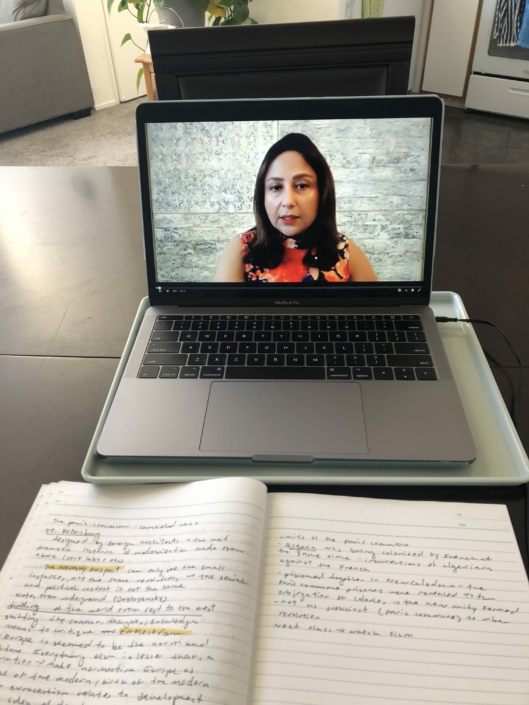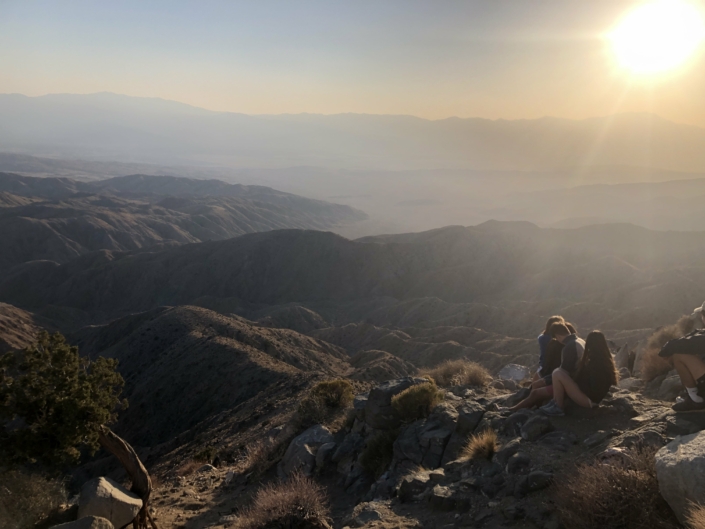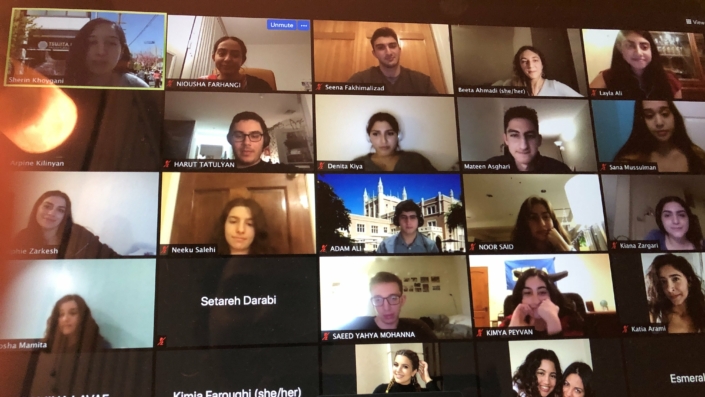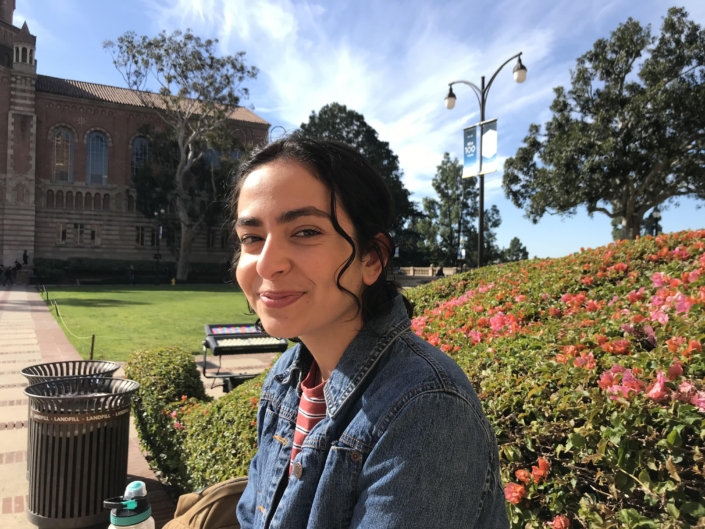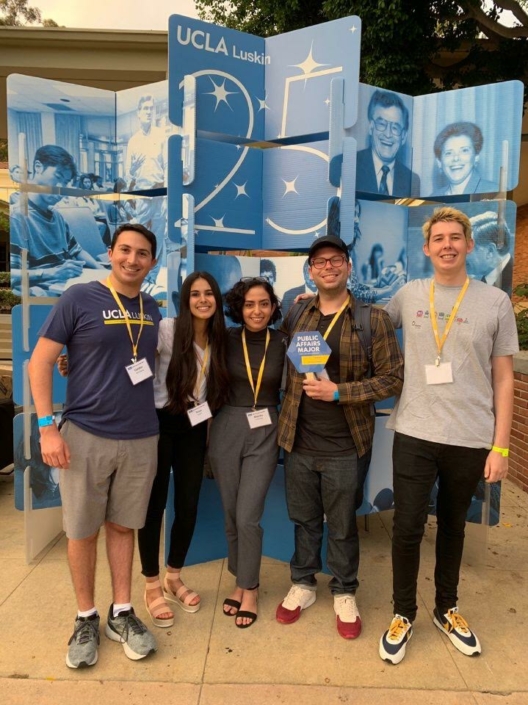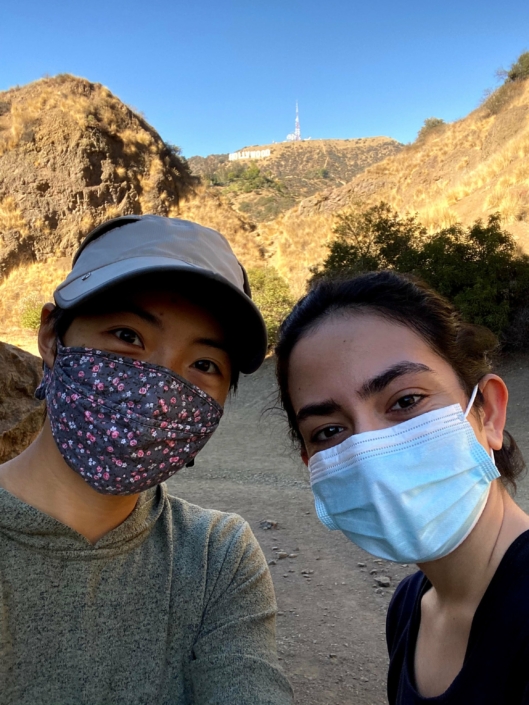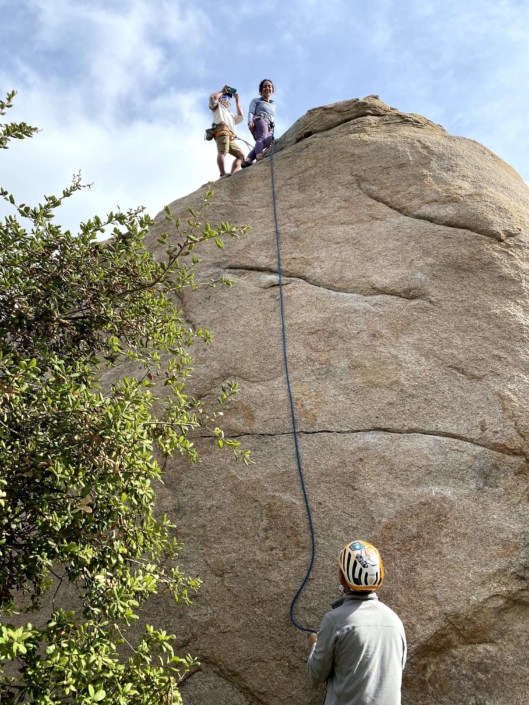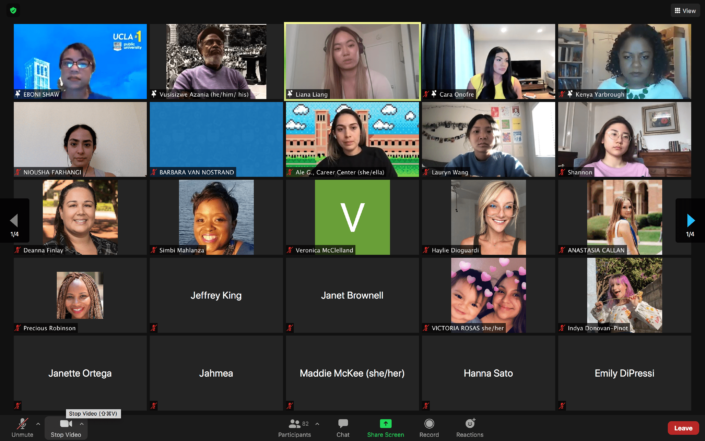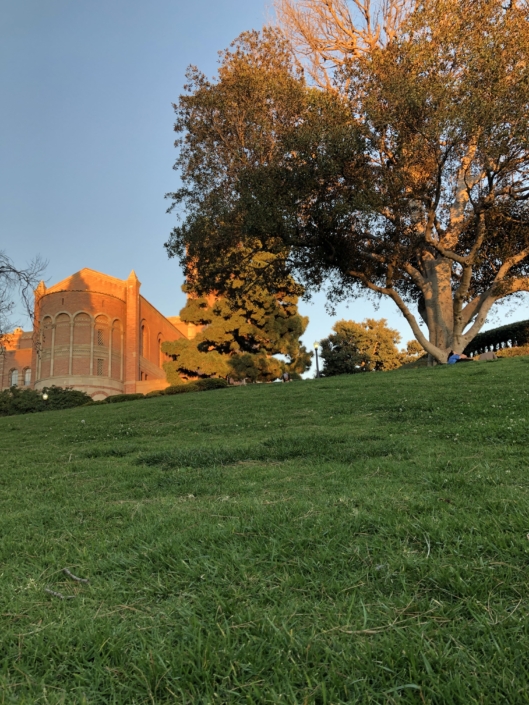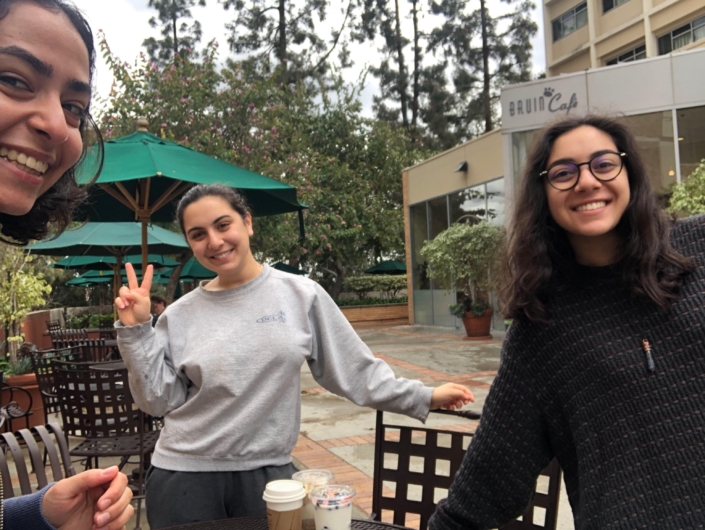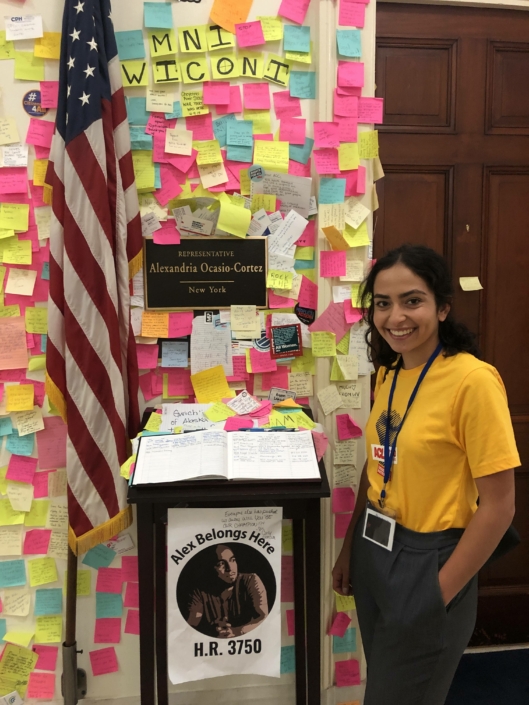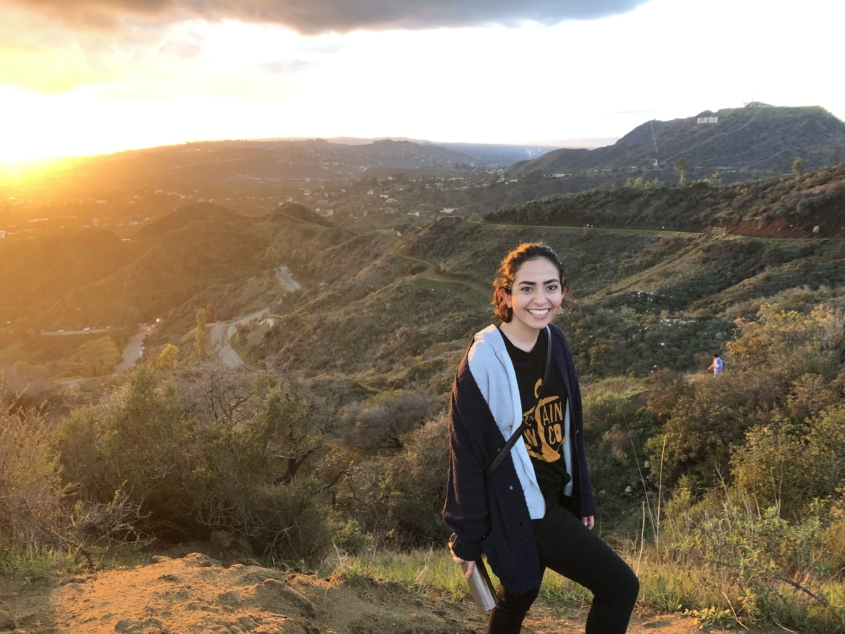
Niousha Farhangi, hiking near Los Angeles’ Griffith Observatory.
UCLA Luskin undergraduate draws strength from her immigrant background to forge her own path toward the American dream
reporting and visual direction by Hon Hoang
photography and captions by Niousha Farhangi
The First Public Affairs Graduates: Last in a series of profiles
Immigrant. First-generation college student. Minority. All these labels apply to Niousha Farhangi, whose accomplishment of getting admitted to UCLA carried with it a measure of trepidation.
“Immigrating to the United States at a young age, I grew up struggling to fit in,” Farhangi said, “being from a minority background and a minority religion.”
She faced and overcame language barriers. And she encountered bureaucratic processes that she said made benign tasks seem like roadblocks for minorities. It takes perseverance for immigrants like herself to reach their goals and achieve some sense of the American dream, said Farhangi, who emigrated at age 5 from Iran with her immediate family in pursuit of educational and career opportunities. Her family settled in a predominantly white neighborhood in Orange County, California.
‘I found strength in my identity…’
Farhangi said her immigrant upbringing still shapes her identity and underscores her commitment to bring about societal change.
“Throughout my life, I found strength in my identity and my struggles through how it informed me and allowed me to connect with people,” Farhangi recalled. Her path from Marina High School in Huntington Beach to UCLA included a stop at community college along the way. “Since graduating high school, I knew that I wanted to utilize my experiences for good toward the public sector and social issues.”
She said that arriving as a transfer student meant she had developed perseverance, which has served her well at the UCLA Luskin School of Public Affairs, where she has pursued a major in public affairs with a minor in global studies.
‘Embracing your own abilities and knowledge’
Farhangi was among the first students to be accepted into the new undergraduate public affairs major at the Luskin School, joining a cohort nicknamed the Trailblazers. Being among the first also meant joining a degree program with a capstone research requirement for which no roadmaps existed.
Uncertainty can create challenge, but it did not deter Farhangi from proceeding with confidence.
“Embracing your own abilities and knowledge is effective in both executing your project and preparing yourself for the workplace after graduation,” she said.
‘Returning the power of property ownership back to community members’
Her background contributed to her decision to focus on housing justice, Farhangi said. She is particularly passionate about efforts that involve policy revisions based on theories of decolonization to address inequity.
Her capstone project is a toolkit aimed at preventing disaster capitalism within Los Angeles. Working alongside an organization known as Strategic Actions for a Just Economy (SAJE), Farhangi has provided research and recommendations relating to the development of long-term solutions to mitigate the impacts of disaster and lessen corporate consolidation within the residential housing market.
She found the work to be particularly important amid the COVID-19 pandemic, which has exacerbated a housing affordability crisis in Los Angeles, particularly within disadvantaged communities.
“Broadly speaking, my project addresses the issue of housing financialization and how to return the power of property ownership back to community members,” Farhangi said.
‘Guidance for students with similar backgrounds as me’
Farhangi has enjoyed her experience at UCLA, though it was not without challenges. She said many low-income students and students of color are not well-equipped for college success. Changing that reality is one goal upon graduation.
“I hope that I can provide guidance for students with similar backgrounds as me and ensure that they too are capable of succeeding,” she said.
Eventually, a master’s degree may be in her future. But for now, she plans to enter the workforce and is looking for employment opportunities in community organizations and nonprofits.
“I am interested in areas of work such as housing justice and community organizing,” Farhangi said. “I want to begin working in the field in order to learn firsthand about the issues and advocacy areas that I have learned so much about in school.”
When she first came to America, Farhangi said she never could have imagined attending a university, let alone succeeding at a prominent one like UCLA. The key to success, she has learned, is that she is not alone on her journey.
“I have had the opportunity to learn from individuals that I immensely admire,” Farhangi said. “My peers at UCLA and the breadth of different stories and experiences represented within student groups have made this journey so worthwhile.”
